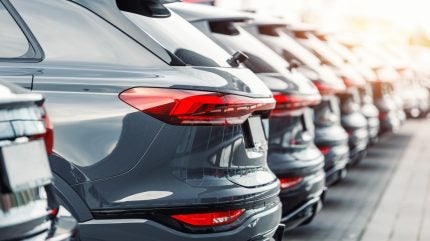
The automotive industry faces a critical challenge as China’s rare-earth export curbs threaten to disrupt global car production.
Executives from leading car manufacturers have raised alarms about the potential shortage of rare-earth magnets, vital components in various automotive applications, from windshield-wiper motors to anti-lock braking sensors, reported Reuters.

Discover B2B Marketing That Performs
Combine business intelligence and editorial excellence to reach engaged professionals across 36 leading media platforms.
In a letter dated 9 May, the head of a major trade group, representing General Motors, Toyota, Volkswagen, Hyundai, and other key players, addressed the Trump administration officials regarding the severity of the situation.
The letter was co-signed by MEMA (Motor & Equipment Manufacturers Association), a supplier trade association.
The Alliance for Automotive Innovation wrote the Trump administration: “Without reliable access to these elements and magnets, automotive suppliers will be unable to produce critical automotive components, including automatic transmissions, throttle bodies, alternators, various motors, sensors, seat belts, speakers, lights, motors, power steering, and cameras.”
The letter warned that US vehicle factories could face disruptions without these essential components.
The groups said: “In severe cases, this could include the need for reduced production volumes or even a shutdown of vehicle assembly lines.”
Alliance CEO John Bozzella and MEMA CEO Bill Long, in conversations with Reuters on Friday, stressed that the issue remains unresolved and is a significant concern.
They thanked the Trump administration for its high-level engagement to prevent disruption to US auto production and the supply chain.
Bozzella highlighted that the automotive issue was discussed during talks in Geneva earlier this month between Treasury Secretary Scott Bessent, US Trade Representative Jamieson Greer, and their Chinese counterparts.
China, which controls over 90% of the global processing capacity for the magnets in question, imposed restrictions in early April that require exporters to obtain licenses from Beijing, a process that has proven complex and opaque.
Exports of rare-earth magnets from China halved in April as companies struggled with the licensing process, which sometimes demands hundreds of pages of documentation.
President Donald Trump, in a social media post on Friday, accused China of breaching a recent agreement intended to ease tariffs and trade restrictions.
In response, China’s embassy in Washington claimed it was the US that was misusing export controls, particularly in the semiconductor sector.
A US official familiar with the talks informed the news agency that the Geneva discussions only covered tariffs and Chinese non-tariff countermeasures, not US export controls.
The official expressed frustration over Beijing’s slow pace in issuing rare-earth export licenses, which could trigger retaliatory export control measures from Washington if automakers, vulnerable to mineral shortages, are forced to cease production.
While a few licenses have been issued, including to some Volkswagen suppliers, Indian automakers report they have received none and may have to halt production as early as June.
German auto parts maker Bosch also indicated this week that its suppliers are struggling with China’s stringent procedures for export licenses.






